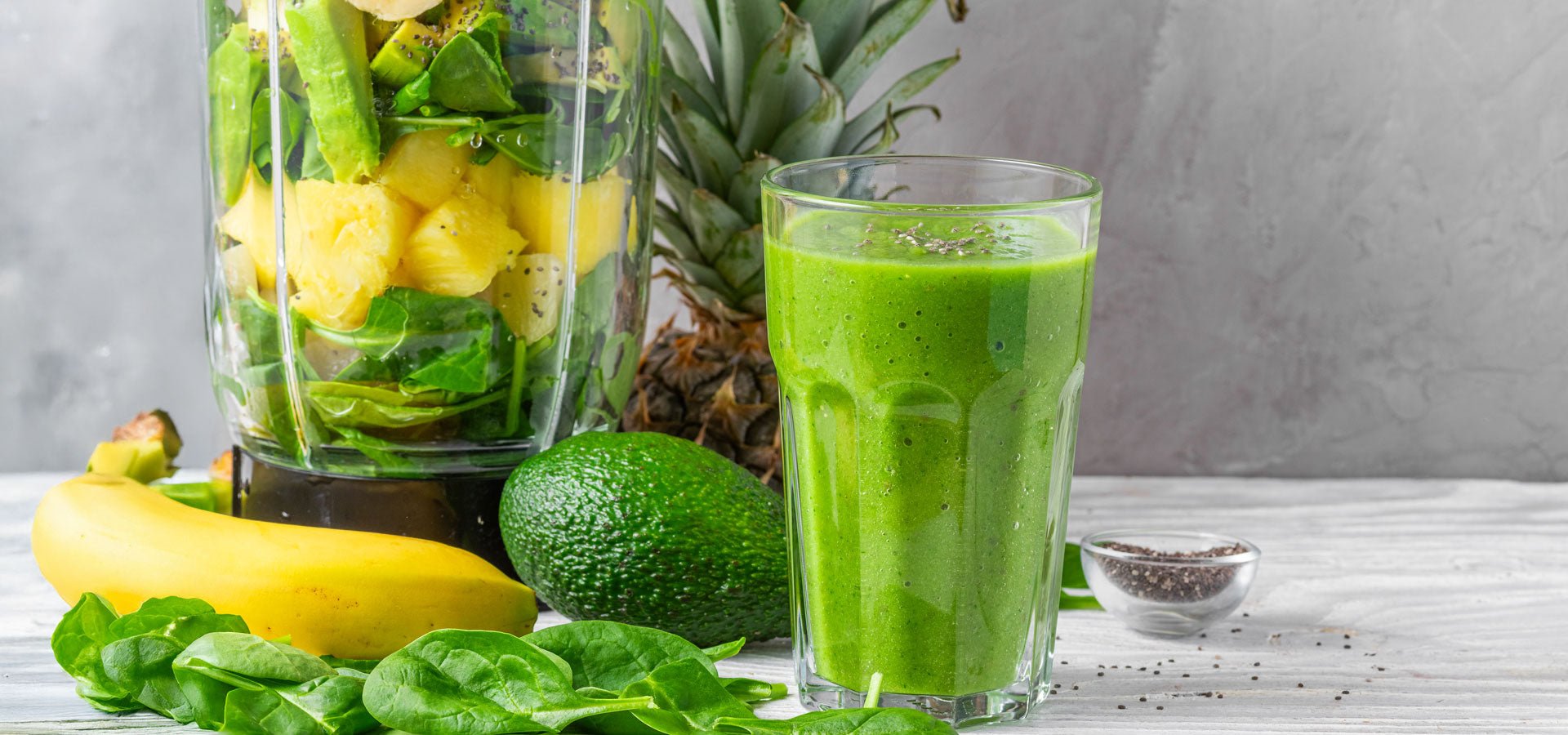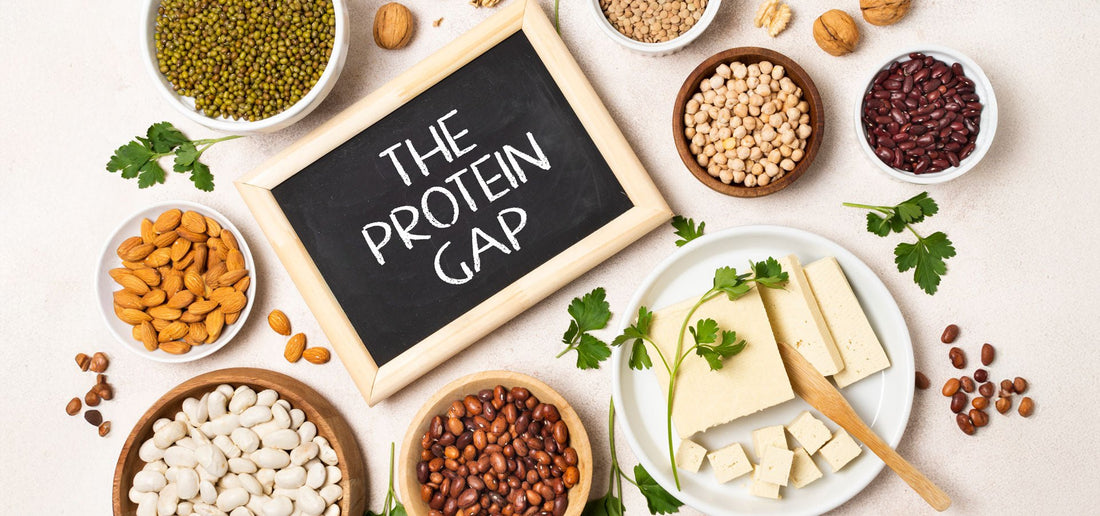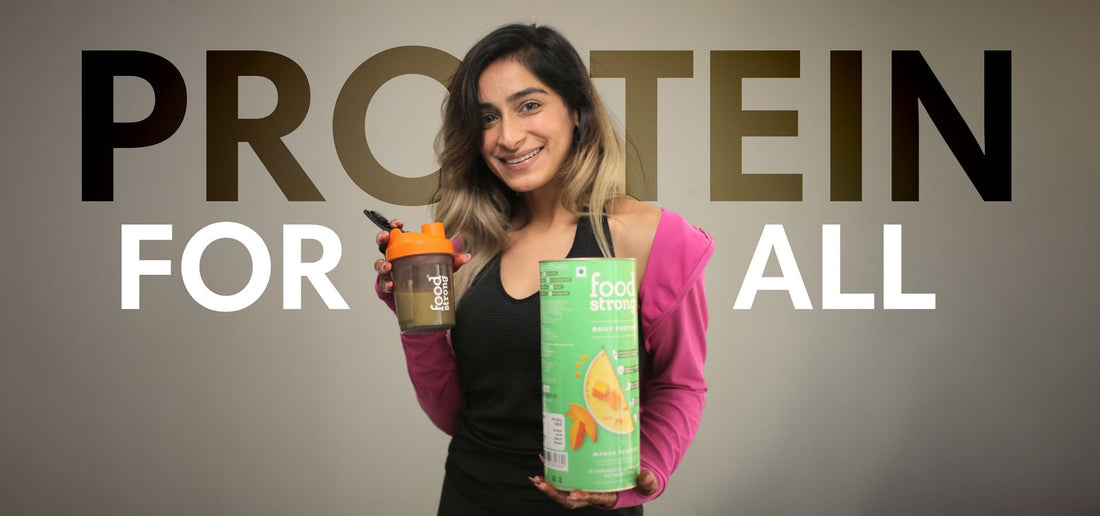Eating Right
India and The Conquest of The Protein Gap.
What we eat is a huge determinant of how healthy we are, and how healthy we feel. Our food habits govern everything, from our susceptibility to lifestyle-related diseases, to our immunity to common infections. Our daily diet consists of various components – carbohydrates, fats, vitamins, minerals and proteins; the last of these being the most indispensable. An elementary fact clearly illustrates the importance of protein: Excess protein consumed by the human body is converted to, and is stored as, fat. Unfortunately, the body has no means to convert excess fat back to protein. If the human body does not get its fill of this most critical dietary component, there is no way for it to make up for this deficiency. This is what might be termed the Protein Gap. While the recommended daily protein intake is 60-90 grams, statistics indicate that the average Indian consumes as little as 10-30 grams. Contrary to assumption, this gap is not correlated with income levels or any specific socio-cultural factor. Urban Indians, with starch-soaked and fat-ridden diets, not to mention ready access to a huge variety of processed foods, are a constituency vulnerable to the pernicious effects of the Protein Gap. While deficiencies in other nutrients manifest in multiple visible ways, the insidious Protein Gap may hide behind such phenomena as general fatigue, poor hair & nail health, and food cravings. These warning signs are often dismissed as mere by-products of a stressful, fast-paced life. This Protein Gap is stunting an entire generation, and is doubtless imposing higher healthcare costs on society. It is incumbent upon us to guard our families from the Protein Gap by finding and distributing the most available, affordable, and sustainable, forms of protein. Foodstrong is your partner in this endeavour. Together, we will transcend the Protein Gap and ensure good health for our loved ones.
Learn moreGood Food Made Easy With Foodstrong
Foodstrong - Good Made Easy! At its core, Foodstrong is all about nutrition and good food. So we blended whey made from the antibiotic free, hormone free milk of grass-fed cows with natural curcumin-rich turmeric and pure antioxidant laden green tea.
Learn moreAre you getting enough protein?
How much protein do you really need? If 24 gm of protein, 30 grams of scoop size and 5.765 gm of BCAA mean nothing to you, then you are not alone. This is gibberish to most people. So we thought we should try and simplify (much to the dislike of the old school) the eternal question of “how much protein”? We will try and break this into three parts – overall protein that your body needs, what you get from food and how much you might need to add. #1. How much protein do you need? For most people it is 1 gm per KG of body weight. So you need 60 gm if you’re 60 KG and 75 gm if you’re 75 KG. Now that is the regular folks. If you’re the gym / training kinds, then this becomes 1.5X i.e. 1.5 gm per KG of body weight. (We're not going to do the gymmer math, it scares us !). #2. How much do you get from food (the regular ghar ka khana)? So dairy gives 3 g, dal gives 2X that = 6 g and chicken / paneer (the ultimate Punjabi veg!) gives 2x that = 12 g. So if you have a bowl of curd, a glass of milk, 2 bowls of dal and some paneer you have reached a glorious 30 g. #3. How much do you need over and above? Here we need to recap the math. So just be with me for a bit. If you are large boned (and not a hard core gymmer) you likely need 60 – 75 g. If you have had a bowl of curd, a glass of milk, 2 bowls of dal and some paneer you have reached a glorious 30 g. It is safe to assume you get 5-10 g more from the other food you eat. So you need about 20-25 g of protein to be added to your diet. Summary: You need to add 20 – 25 g of protein to your food everyday. Protip: the body doesn’t store protein (unlike fats and carbs, damn!). So you need to have this everyday. Hope that helps. Stay strong with foodstrong
Learn moreWHAT THE WHEY- The Complete Beginners Guide to Whey Protein.
Look anywhere online and you’ll be undoubtable bombarded with the myriad health benefits, tips, tricks & myths surrounding Whey Protein. This blog post is a definitive guide to help you gain clarity on one of the most effective & scientifically backed health supplements out there. Before we delve into what whey protein is, let’s first address what it’s not, it’s NOT a Steroid or a Hormone, it’s not Addictive & it’s definitely not harmful for you. Whey protein powder was first synthesized for human consumption in the 1930s. But we all have seen whey in it’s precursor stage, that’s right, in the cheese making process (like home-made paneer) when you hang the cheese curds to expunge the excess liquid. That milky translucent liquid residue is the aforementioned whey! Once the liquid whey is pasteurized and dried, it turns into whey protein powder that is widely available today making it 100% vegetarian. What’s so special about whey protein? Whey has quite a diverse amino acid profile. It contains amino acids such as glutamine, the dopamine aide tyrosine, arginine, and others such as lysine, glycine, phenylalanine, and aspartic acid. Whey also contains the ever-crucial branch-chained amino acids. or BCAAs. These complex natural chemicals are the building blocks of your body helping with overall wellness, longevity, muscle repair and building. So why should you care? Research indicates that close to 80% of Indian diets are critically protein deficient. This implies that Indians are not getting the right amount of their daily protein requirement that has a whole host of repercussions. A diet deficient in protein can lead to: Loss of muscle mass: Your muscles are made of protein and if your body is protein-deficient, you tend to lose the muscles, this process is called muscle atrophy. This in turn reduces your strength, makes it harder to keep your balance and slows your metabolism. 2. Skin, nail & hair health: A low protein diet can leave its mark on your skin, nails & hair which are essentially made of protein and other compounds. Brittle nails & Dryness of the hair are hallmarks of a low protein diet. Makes body more susceptible to infections: A protein deficiency in the diet has an adverse effect on the body. It weakens the body’s immune system. The immune system is responsible to provide antibodies. A weak immune system leads to you being more prone to infections. Brittle & fragile Bones: A protein deficient body affects the bones in a critical way. To maintain strength and bone density you require protein. Insufficient protein weakens your bones, making them fragile and causes bone fractures frequently. Increased appetite and food cravings: Protein keeps you satiated for a long period of time, thereby keeping you from craving foods that are processed and unhealthy. Most of the foods that are processed tend to be high in calories. Luckily most of these complications are reversible with upping your daily protein intake. To help replenish your protein stores. So why Whey Protein? Whey Protein Powder vs other sources of protein. So you may be thinking, why not simply increase the intake of your trusted daals, meats & dairy products to offset your diet that may be lacking protein. For starters if you are vegetarian, you have limited protein options to choose from, and The ones that are available in their commonly available form lack the complex amino acid profile your body requires. Secondly our fast paced lifestyle impedes us from meal prepping in advance and diets that are available online are either too complicated to follow or are so strict that sticking to them for a long term is impossible. Lastly Whey protein is one of the best sources of protein out there when compared gram for gram. Below is a graph that shows commonly available items and their protein content: So it's clear that whey protein has a superior protein content making it the perfect option for a quick and effective protein supplement. The bottom line Whey protein has come a long way since it was first introduced in the 30s; they have become purer and are available in hundreds of delicious flavours to savour.As the world moves more towards sustainability, mindful and ethical animal husbandry practices. Grass Fed Whey is the future of whey protein. Simply put Grass Fed whey is derived from the milk of cows that have only eaten high quality grass-feed & haven’t been subjected to any hormones or human interventions to bolster the production output. The result is a 100% natural & nutrient dense whey protein that has a superior amino acid profile and has a BCCA content of 1.3x regular whey protein powder. The extracted protein powder also has higher Omega-3, Vitamin (E&B) and minerals like calcium, magnesium and potassium. If you have any questions about whey protein or about Our Grass fed whey protein [Hyperlink]. Do let us know in the comments below or email us at email@email.com and we’ll be happy to help.
Learn more





